January 12, 2023
The FCA has sent a letter to Claims Management Companies (CMCs) which, although not as hard-line as their similar October 2020 Portfolio Letter, provides a window into the FCA’s current focus on unregulated activity. Firms should understand the reasons for the FCA’s views and consider them in the context of their own businesses, as many of the issues raised in the letter could be applied to lead generation firms generally.
The letter highlights some FCA concerns, including:
- misleading, unclear and unfair advertising where consumers, particularly those who are vulnerable, can be misled by firms’ poor-quality promotions;
- firms using their FCA authorisation to legitimise their non-regulated services;
- inappropriate sourcing of customers where firms do not always conduct or document appropriate checks when purchasing customer data or leads, or do not ensure this has been sourced lawfully from a firm with the correct FCA permissions where these are required;
- firms failing to investigate the existence and merits of each element of a potential claim; and
- poor attitudes to regulatory obligations where firms do not take a proactive approach to regulatory compliance and do not deal with the FCA in an open and cooperative way.
Areas for FCA focus include striving to minimise the potential for unregulated business and activity to benefit from the ‘halo’ effect of FCA authorisation. This ties in with the FCA’s increasing focus on unregulated activities generally, such as at ARs.

The CMC portfolio letter touches on the overlap between regulated and unregulated activities and the FCA’s view on this subject. The inquiry following the London Capital & Finance scandal recommended that the FCA takes a more “holistic” approach to supervising a firm and looks at a firm’s regulated and unregulated activities.
In its letter to CMCs, the FCA has said that it expects them to be clear with consumers about which of their products and services are or are not regulated, and to ensure that consumers are not harmed by any non-regulated services they provide. The way in which regulated firms carry on unregulated activities can affect the FCA’s overall view of the fitness and propriety of individuals and firms.
The FCA has indicated that it will consider whether firms’ processes and systems and controls differentiate between regulated and unregulated business and ensure customers are not misled into believing all services are FCA regulated. The FCA reminds firms that the Consumer Duty requires firms to act in good faith, and to provide consumers with the right information to make properly informed decisions.
There is a possibly a link between these views and the FCA’s current activity in relation to ARs. ICS has observed the FCA ask Principals about unregulated activities carried on by their ARs, and there are also questions about this issue in the FCA’s current Principal firms’ AR data request.
Two recent examples of this focus are:
- the FCA seeing what could be argued as a customer paying for the flexibility of a cancellation facility (which is available on many booking sites) as unauthorised travel insurance; and
- the FCA’s interest in a complaint made to them about the sale of an unwanted paint protection product (so not any form of regulated insurance or guarantee of warranty – an actual paint treatment product) that was allegedly sold with a car.
FCA interest in such cases may be viewed by some as harsh, with the FCA perhaps justifying the interest in unregulated activities by arguing that culture goes across the whole of a firm, i.e., it would be difficult to have a ‘good’ culture in the regulated side of a business where there is what appears to be a ‘bad’ culture in the unregulated side.
For Principal firms with ARs, it will clearly be beneficial to have effective and transparent communications with their ARs about any unregulated activities they may undertake, as well as about the regulated activities for which the Principal has taken regulatory responsibility.
ICS has guidance and template documents which AR Principals can use to evidence appropriate monitoring of their ARs. Please contact us on 01892 539600 for more information or email
